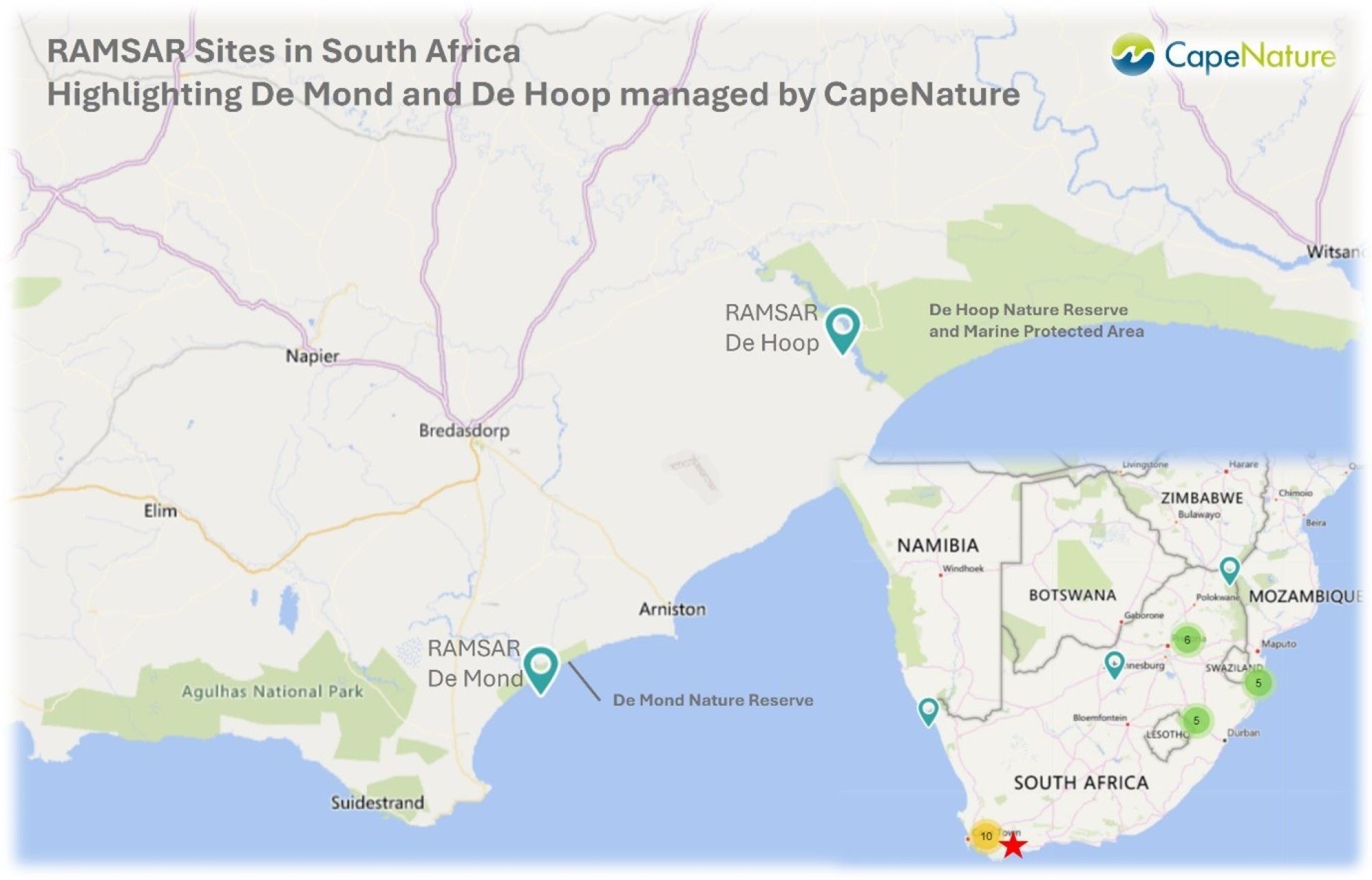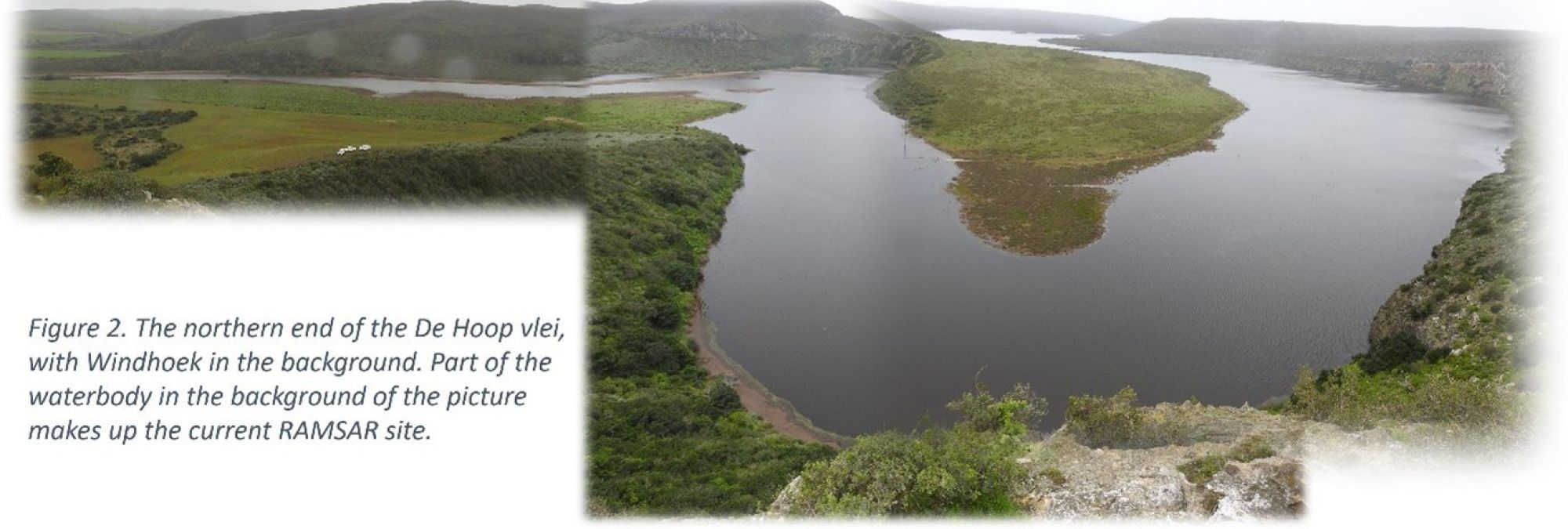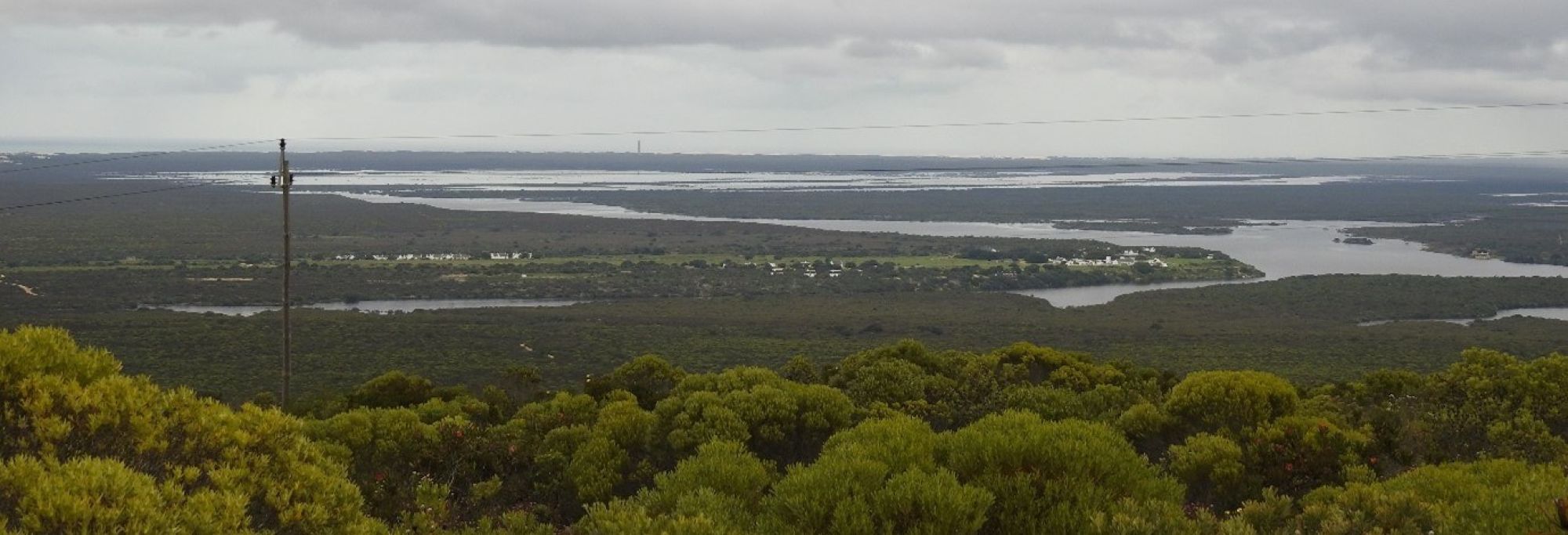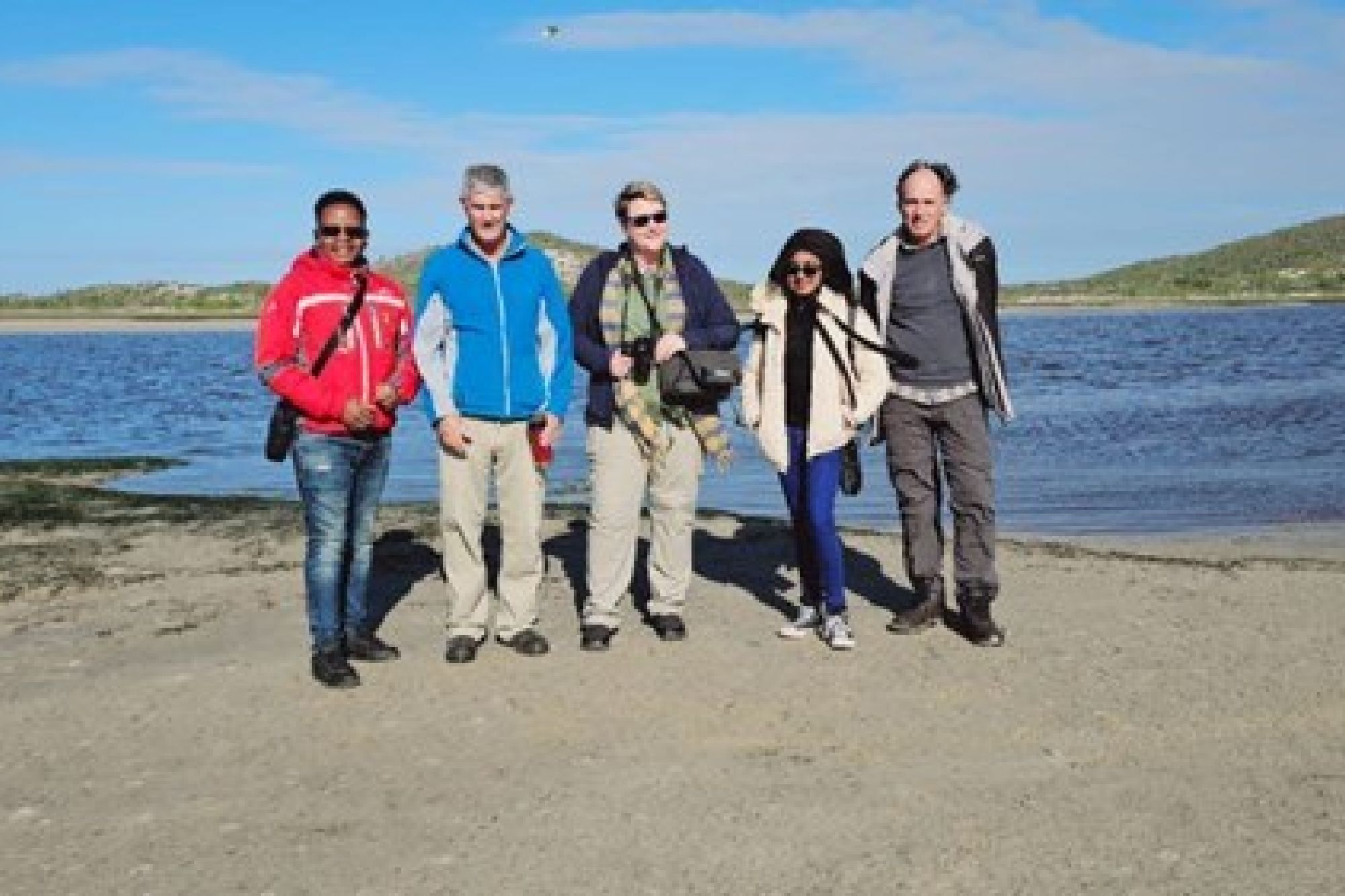
DFFE RAMSAR site visit and Ramsar information system (RIS) update
The Convention on Wetlands is a global intergovernmental treaty that provides the framework for the conservation and wise use of wetlands and their resources. The Convention was adopted in the Iranian city of Ramsar in 1971 and came into force in 1975. South Africa, together with almost 90% of United Nations member states from all the world’s geographic regions, have agreed to become “Contracting Parties” committing to designating sites as Wetlands of International Importance.
Since then, South Africa has declared 30 RAMSAR Sites under the Convention, with the most recent being the Berg Estuary in the Western Cape. CapeNature manages seven of the 11 RAMSAR sites in the Western Cape, namely De Hoop Vlei; De Mond; Dyer Island; Bot-Kleinmond Estuarine System; Dassen Island; Berg Estuary and Verlorenvlei Estuary.

This specific site visit and the associated RIS update discussion focused on two specific RAMSAR Sites managed by CapeNature in the Western Cape, namely De Mond Ramsar site (Heuningnes Estuarine Lake system), part of which is situated in the De Mond Nature Reserve, and De Hoop Vlei, a unique freshwater coastal lake situated in the De Hoop Nature Reserve and adjacent to the De Hoop Marine Protected Area. Both sites are situated in the south-western Cape.

On the 24 and 25th of June 2024, a Department of Forestry, Fisheries and Environment RAMSAR delegation joined the local CapeNature RASMAR Site Management teams of De Hoop Vlei and De Mond Estuary for an exciting field visit and associated discussions. CapeNature is required to update the RAMSAR Site Information Sheets (RIS) every 10 years. The RAMSAR RIS platform enables CapeNature to share important information on each existing site with all stakeholders while at the same time committing to explore opportunities to expand the existing sites to include functional ecosystems.
De Mond RAMSAR Site, declared under RAMSAR Criteria 1, 2, 3 and 4 aims to extend the RAMSAR status to include the full Heuningnes estuarine lake ecosystem. CapeNature in partnership with SANParks, is working towards expanding the RAMSAR site to include the Soetendalsvlei wetland which forms an integral part of the estuarine lake system. This will effectively increase the size of the RAMSAR site from 918ha to 3172ha. CapeNature implements the Heuningnes Estuarine Lake estuary management plan (EMP) developed and approved in line with the Integrated Coastal Management Act and the National Estuarine Management Protocol as well as the estuary mouth maintenance management plan (MMP) which was developed in line with the National Environmental Act. Both management processes aim to facilitate the functional link between the different catchments, Soetendalsvlei, the estuarine lake system and the ocean. An estuary advisory forum provides a platform for continued transparency with all stakeholders.

Figure 1. Heuningnes estuarine lake and estuary super-tidal habitat.
De Hoop RAMSAR Site, declared under RAMSAR Criteria 1, 2, 3, 4, 5 and 6, is a freshwater ecosystem. In addition to effective management and monitoring, the aim is to expand the RAMSAR site to include the upper portion of the wetland, which is currently being managed by the Fynbos Trust. This would result in an increase of the current size by including shallow portions of the lake system which generally dry up early in the summer season and, in doing so, provide important shallow feeding grounds for migratory bird species. In the long term the aim is to include areas on the east and west of the wetland in conservation areas.


Figure 3. The De Hoop vlei reflects the extent of the water body under high rainfall conditions (winter rainfall in the Western Cape). The water body extending into the Denel Overberg Test Range (rear left of photograph), is shallower and more seasonal than the deeper sections (foreground).
With the target of the Global Biodiversity Frameworks 30% protection by 2030 (30x30) in mind, the DFFE/CapeNature team put their heads together to use the limited time to work through the two RIS documents towards the final updating process and to agree on a way forward to plan short-, medium- and long-term goals of improving and expanding protection of these critical habitats.

Figure 4. The CapeNature and DFFE team members on the banks of the Heuningnes Estuary (De Mond RAMSAR Site), from left; Stanley Tshitwamulomoni (DFFE Director Strategic Water Source and Wetlands); Keith Spencer (CapeNature Marine & Coasts Specialist); Jackie Jay (Control Biodiversity Officer: Water Sources & Wetlands Conservation & Assistant National Focal Point: RAMSAR Convention on Wetlands); Kirsten Muthady (DFFE Intern: Water Sources and Wetlands Conservation) and Mark Johns (CapeNature Conservation Manager on Reserve, De Hoop and De Mond). Not in the picture Mark Williams (CapeNature Conservation Manager on Reserve: De Mond and De Hoop) and Chris Martens (Managing Director Fynbos Trust and chair of the Heuningnes Estuary Advisory Forum).
Related News
How can I assist you today?
How can I assist you today?



